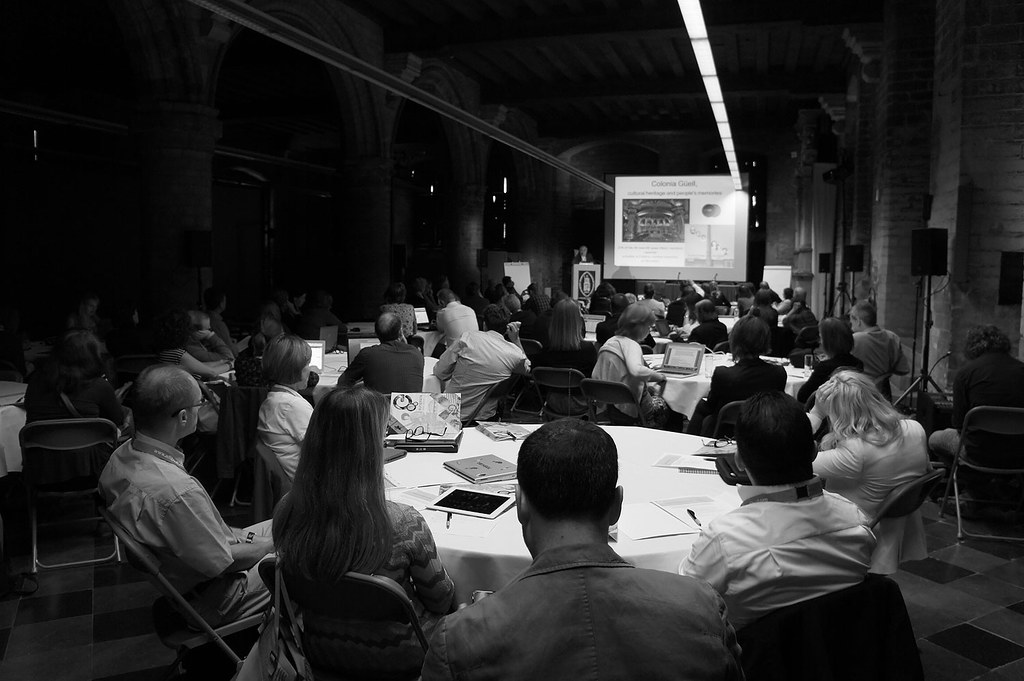Europeana Plenary in Leuven
On Thursday 14th and Friday the 15th of June, the annual Europeana Plenary session was being held in Leuven. Project partners from more than 25 different Europeana related projects came to Leuven to hear about the progress being made and the plans for the future. But above all, to meet other partners. With several hundreds of people working for this project, and more to come, it is often hard to keep track of all the great work that is being done to make more cultural data available online for anybody to re-use.

After a word of welcome by Jill Cousins, the executive director of Europeana, several events that had happened in the last year where presented. This included an overview of the Hack4Europe event held in Warsaw, which resulted in several prototypes, as well as the incredibly successful World War 1 Roadshows that resulted in hundreds of people bringing memorabilia from this period in history to be digitised and made available.
It actually became really interesting during the lunch where there was time to get informed about the work other people were doing. During the speed-dating sessions, several project representatives could get in toch with each other which led to the realisation that for example work the Digitised Manuscripts to Europeana project does, is very valuable to the recently started Open Up! project, which works to open up national history heritage.
After this there were three paralel sessions where different aspects and challenges of the huge aggregation project were addressed. During the Open Culture/Reuse session Nikki Timmermans presented the results of the Open Culture Data project that has been very successful in the Netherlands in helping cultural institutions to open up their data and to show different ways of re-using this data as well. After that the group was split up to discuss ways to reuse all this cultural data that is being made available at the moment. Although several good attempts were mentioned, we are no way near the full potential of open cultural data. There are several issues that first need to be solved to make this possible such as the licensing problems as well as the enrichment of the quality of the metadata. It was also concluded that having only digital metadata is not enough. Rich metadata is of great value to help exploring the data, but in the end, it is the actual digitised objects that developers and end-users want to see.
Parallel to the conference, a large hackathon was organised where 12 teams of developers worked with the API key of Europeana. On Friday, the results were presented and the winners were chosen. The developers managed to build quite some impressive prototypes. One amongst them was Storeana. When a user enters search term in Storeana, it searches for the matching Wikipedia article, and cuts this into short textblocks. It the analyses the words in the piece of text and adds the relevant images from Europeana next to it. This is a really good example of how different open API’s can be combined in such a way it adds value to both of them. All the prototypes will be made available by Europeana.
It were two days with lots of conversations between different projects working in the Europeana universe. The overall optimism was great, but at the same time everybody realises that a lot of work needs to be done to actually reach that shared goal making available more cultural data.
